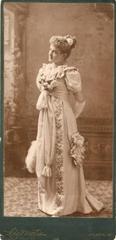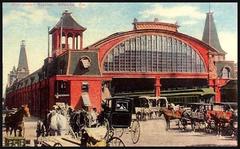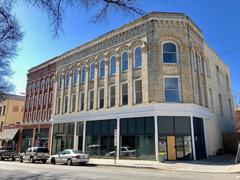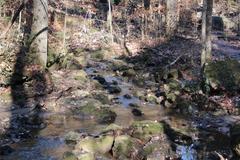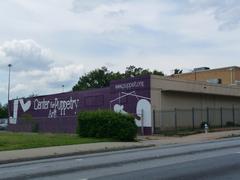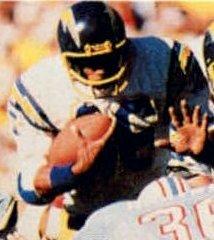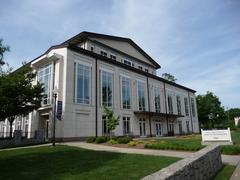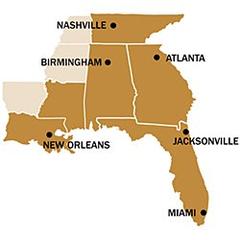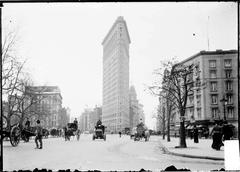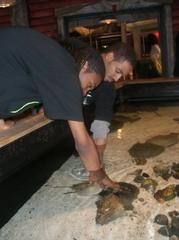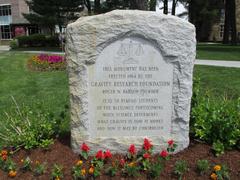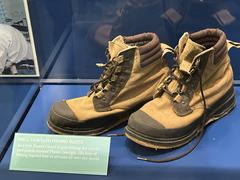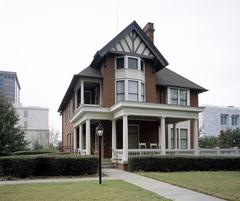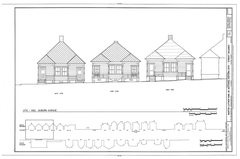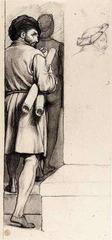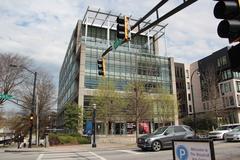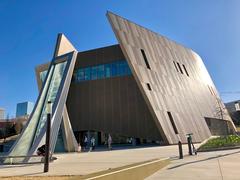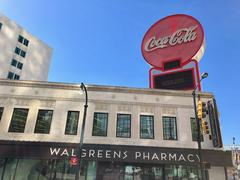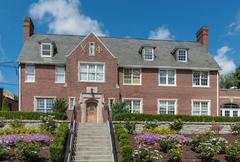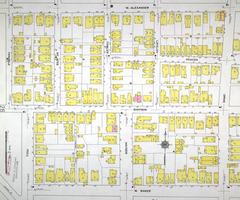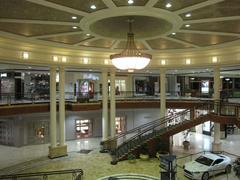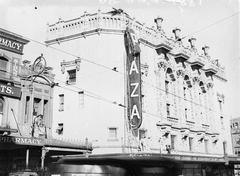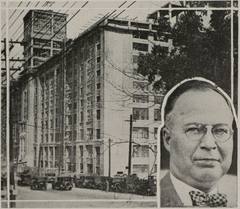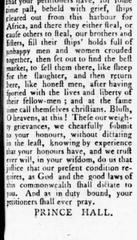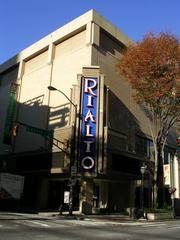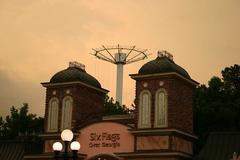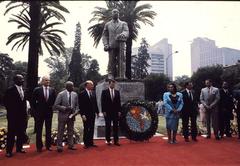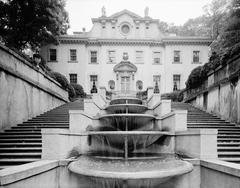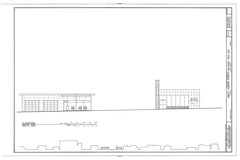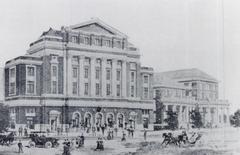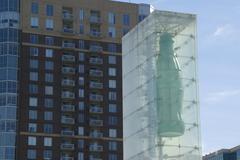
First Congregational Church Atlanta: Visiting Hours, Tickets, and Historical Guide
Date: 04/07/2025
Introduction
The First Congregational Church of Atlanta is a cornerstone among Atlanta historical sites and a beacon of African American heritage, civil rights advocacy, and spiritual community. Established in 1867 in the heart of downtown Atlanta, this historic church stands as one of the oldest African American Congregational churches in the United States. Its enduring legacy is woven into the fabric of Atlanta’s spiritual, cultural, and social progress. Visitors are invited to experience not only its rich history and Romanesque Revival architecture but also its ongoing commitment to community engagement and social justice. This comprehensive guide provides all the essential details about visiting hours, ticketing, tours, accessibility, nearby attractions, and practical tips to ensure a meaningful visit to First Congregational Church Atlanta. (First Church ATL History; CitySeeker; SIG Earth)
Historical Overview
Foundation and Early Years (1867–1894)
Founded in the aftermath of the Civil War, the First Congregational Church of Atlanta emerged from the efforts of freedmen and abolitionist missionaries of the American Missionary Association. Officially organized on May 26, 1867, the congregation was driven by a mission to provide spiritual guidance, education, and community support for newly emancipated African Americans. The AMA, also responsible for the Storrs School, provided land at Houston (now John Wesley Dobbs Avenue) and Courtland Streets, where the original “little red church” was built in 1877. Early members included both Black and white congregants, and notable figures such as Edmund Asa Ware, Atlanta University’s first president, played a key role in its establishment. Over time, the church became predominantly African American, reflecting the evolving social landscape of Atlanta. (First Church ATL History; Wikipedia)
Growth, Advocacy, and Social Impact (1894–1919)
Dr. Henry Hugh Proctor, appointed in 1894 as the church’s first African American pastor, expanded its mission to include comprehensive social programs. These included a day nursery for working mothers, educational and industrial classes, employment services, a public library and reading room, and the city’s first integrated water fountain. The church became a hub for Atlanta’s Black professionals, educators, and civil rights leaders, frequently hosting landmark events such as the founding of the National Medical Association and the Atlanta Interracial Commission. Dr. Proctor’s leadership during the 1906 Atlanta Race Riot and his advocacy for Black troops during World War I further cemented the church’s importance in Atlanta’s social and political life. (First Church ATL History; FCCDC History)
Architectural Significance
The current church building, completed in 1908 and designed by Alexander Campbell Bruce and Arthur Greene Everett, is an outstanding example of Romanesque Revival architecture. The red brick façade, arched windows, and prominent bell tower make it a distinctive landmark. The sanctuary features original stained-glass windows and period woodwork. In 1991, a modern addition improved accessibility for all visitors. The building has been listed on the National Register of Historic Places since 1979. (SIG Earth; Wikipedia)
Leadership and Legacy (1920s–Present)
Subsequent decades saw the church led by prominent African American clergy, including Rev. Dr. Homer C. McEwen and Dr. Dwight Andrews. The church hosted historic figures such as Presidents William Howard Taft and Theodore Roosevelt, Booker T. Washington, Congressman John Lewis, and Vice President Kamala Harris. Notable members include Alonzo Herndon, Atlanta’s first Black millionaire, and Ambassador Andrew Young. The church remains deeply involved in social justice, education, and cultural programming. (First Church ATL History; Wikipedia)
Visitor Information: Hours, Tickets, and Accessibility
Visiting Hours
- Monday to Saturday: 9:00 AM–5:00 PM (some sources note 10:00 AM–4:00 PM; check official website for updates)
- Sunday: 11:00 AM worship service (open to all); visitor access typically from 9:30 AM–12:30 PM
Admission and Tickets
- General Admission: Free
- Donations: Gratefully accepted to support preservation and community programs
- Guided Tours: Available by reservation; group tours and educational visits welcome
- Special Events: Select events (e.g., First Friday at First Jazz Series) require advance tickets (First Church ATL Events)
Accessibility
- Fully ADA compliant with ramps, elevators, and accessible restrooms
- Visitors with special needs are encouraged to contact the church in advance
Directions and Parking
- Location: 105 Courtland St NE, Atlanta, GA 30303
- Public Transit: Easy access via MARTA (Peachtree Center Station nearby)
- Parking: Limited on-site; public garages and lots nearby
Guided Tours and Educational Programs
- Docent-led tours provide in-depth commentary on the church’s history, architecture, and role in Atlanta’s civil rights movement
- Group tours available for schools, civic organizations, and delegations (customized upon request)
- Educational programming includes presentations on the church’s notable members, social justice initiatives, and community impact
- Virtual resources: Photo galleries, event calendars, and virtual tours available on the official website
Worship Services and Events
- Sunday Worship: Open to all at 11:00 AM, featuring dynamic preaching and gospel music
- Special Events: Heritage Sunday, Black History Month celebrations, and the First Friday at First Jazz Series (First Church ATL Events)
- Community Engagement: Ongoing outreach, music ministry, and cultural events foster a welcoming, inclusive environment
Atlanta Historical Sites and Nearby Attractions
First Congregational Church’s downtown location offers easy access to many of Atlanta’s most significant landmarks:
Nearby Historical & Cultural Sites
- Sweet Auburn Historic District: Includes Martin Luther King Jr. National Historical Park, The King Center, Ebenezer Baptist Church (Family Destinations Guide; BlackPulseHQ)
- Oakland Cemetery: Resting place of notable Atlantans; offers guided tours (Discover Atlanta)
- High Museum of Art: Major collection of American, European, and African art (Explore Georgia)
- Atlanta History Center: Immersive exhibits on city history
- Fox Theatre: Historic performing arts venue
- Centennial Olympic Park: Outdoor concerts and events
- Atlanta Botanical Garden: Renowned plant collections
Food, Shopping, and More
- Ponce City Market: Shopping, dining, and rooftop entertainment
- Sweet Auburn Curb Market: Local produce and Southern cuisine
Visitor Tips
- Book tours in advance for a personalized experience
- Check event calendars for special programming and concerts
- Dress modestly and respectfully—business casual is common but casual attire is welcome
- Photography is allowed in most areas except during services; confirm with staff
- Use MARTA or rideshares for convenient transit, especially during busy periods
- Explore nearby attractions to enrich your visit to downtown Atlanta
Frequently Asked Questions (FAQs)
Q: What are the visiting hours for First Congregational Church Atlanta?
A: Monday–Saturday, generally 9:00 AM–5:00 PM; Sunday services at 11:00 AM.
Q: Is there an admission fee or are tickets required?
A: General admission is free. Guided tours and special events may require reservations or tickets.
Q: How do I book a guided tour?
A: Contact the church office via the official website or by phone.
Q: Is the church wheelchair accessible?
A: Yes, the building is fully ADA compliant.
Q: What parking options are available?
A: Limited on-site parking; several public garages are nearby.
Q: Are there special events open to the public?
A: Yes, including concerts, exhibitions, and community forums. Check the event calendar for details.
Conclusion
The First Congregational Church of Atlanta offers an enriching journey into the city’s African American heritage, faith traditions, and social activism. With accessible visiting hours, free admission, and a central downtown location, it stands as a must-see among Atlanta historical sites. Whether you are attending a worship service, joining a guided tour, or exploring nearby landmarks, your visit promises a meaningful connection to Atlanta’s vibrant past and present.
Plan your trip by visiting the church’s official website, consult related posts for more on Atlanta’s historic sites, and download the Audiala app for curated tours and personalized itineraries. Engage with the church’s living legacy—and contribute to its ongoing mission through support, participation, and community engagement.
References
- First Church ATL History
- First Congregational Church (Atlanta) – Wikipedia
- CitySeeker: First Congregational Church Atlanta
- SIG Earth: First Congregational Church Atlanta
- Family Destinations Guide: Top Atlanta Attractions
- FCCDC History
- BlackPulseHQ
- Discover Atlanta
- Explore Georgia
- Atlanta Events July 2025
- First Church ATL Events
- The Tourist Checklist
- Atlanta CityPASS













